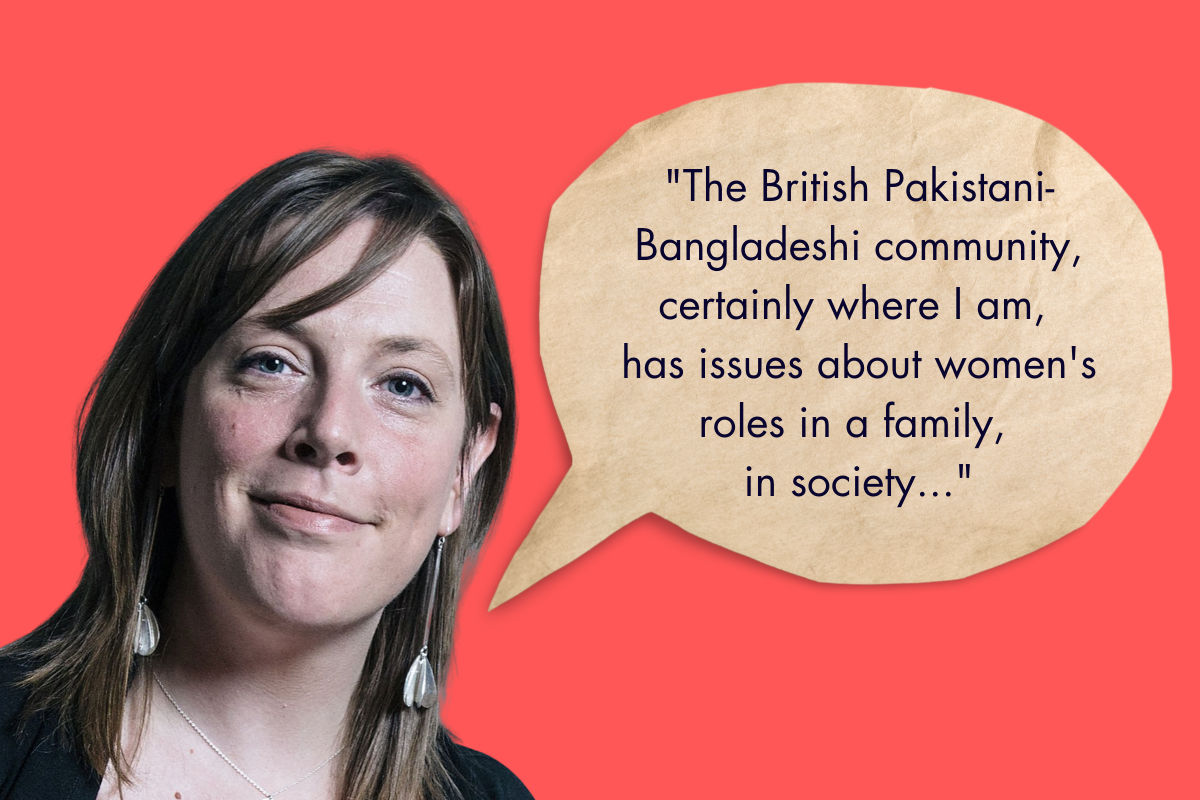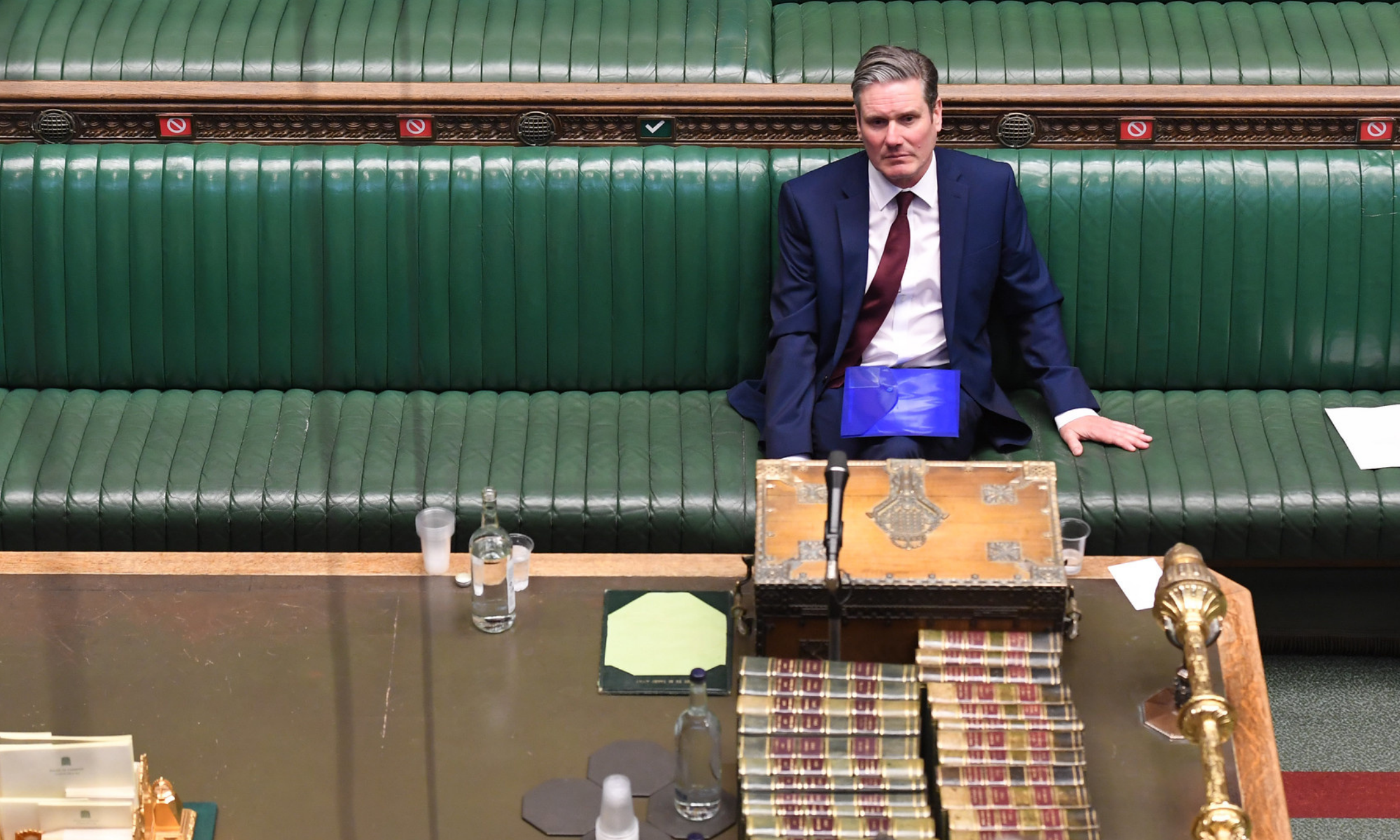
Photography via Wikimedia Commons / Chris McAndrew
Writing for the Guardian last weekend, Labour MP for Birmingham Yardley Jess Phillips outlined her commitment to “do everything we need to win again”. As we heal and restore from the devastating UK election result, this sounds like exactly the kind of motivational patter we need; an energised call to arms, a bugle-horn signalling the next phase of the fightback. However, given Jess’ track record – one dogged by the whiteness of her feminism – her angling for leadership of the Labour party by doing “everything we need” is cause for alarm. As Akwugo Emejulu and Francesca Sobande explain, writing on Afrofeminism in Europe: “Because white women benefit from white supremacy, they can be, at best, unreliable actors for liberation and at worst, active and willing agents for black women’s oppression”.
This feels fitting, as we live out the last few weeks of a decade which has been a peak era of “white feminism”. White feminism is not simply the feminism of white women, which has the potential to be intersectional and liberatory. Instead, this phrase describes a feminism of and about whiteness – a movement that cloaks the advancement of white women only in the language and affectation of intersectionality, but with none of the substance. As a result, other marginalised women are often thrown under the bus. This is the common curse of white feminism – an industrialism of “girly swots” who “get things done” at any cost.
Despite Jeremy Corbyn being the first Labour leader in our generation’s lifetime to offer a truly socialist vision for a government that works “for the many, not the few”, like many MPs across the party, Jess has been clear in setting her stall out as a critic of him. In an interview with political commentator Owen Jones in 2015, Jess said “I would do anything that I felt was going to make the Labour party win the next election” and that she wouldn’t “knife” Jeremy Corbyn in the back, but instead, in the front.
“Jess described Jacob Rees-Mogg as a ‘real gent'”
I think a different tack needs to be taken. The next Labour leader must not, in their efforts to win votes, “do anything” to concede to the right-wing and drag Labour back to the political centre. Both former leaders Tony Blair and Ed Miliband tried this approach, respectively leading Britain into a widely unpopular war in Afghanistan and Iraq, and pushing Labour’s stance on immigration closer to the right than it had been in decades. This clumsy attempt to “keep up” with the Tories was famously symbolised by Labour’s brash red promotional mug released in 2015, which bore the slogan “controls on immigration” above the statement “I’m voting Labour”.
This retracing of steps back into the political centre by pledging to win “trust” from particular demographics has resurfaced as rhetoric in the wake of the election. Jess’ article this weekend focused on what she framed as Labour’s betrayal of the “working class”. While the Labour party and the left absolutely need to take stock and build strategies around the failure of this election, this angle entirely erases people of colour in the working class. The working class is not a monolith. 61 of the 63 most diverse constituencies did actually vote Labour last week, so we can only assume that by “working class” Jess is referring to white voters. As journalist Ash Sarkar also wrote on Twitter: “I’m not sure if how you shore up [Labour] votes is simply by chucking your working class BAME and young voters under the bus and hoping Bolsover comes back”.
Labour has been down this road before; this fervour for reconnecting with white voters by drifting into the centre echoes Labour leader Ed Miliband’s 2012 speech which marked Labour tentatively hopping on board with hostile environment rhetoric, just one month before Theresa May sent “go home vans” into six of London’s most diverse boroughs. In his speech, Ed says: “Worrying about immigration, talking about immigration, thinking about immigration, does not make [people] bigots […] if we are to address people’s concerns, I believe Labour must change its approach to immigration. Recognising the costs as well as the benefits”.
“Jess has called the demands of transphobic group Woman’s Place UK ‘completely reasonable'”
Jess has form when it comes to throwing marginalised groups (and people of colour, in particular) under the bus in the pursuit of headlines. In 2016 she called the police on a traveller community in her constituency. And in 2015 she described anti-choice Thatcherite Tory MP Jacob Rees-Mogg as a “real gent” after driving around with him in his constituency, and famously bragged about telling Labour MP Diane Abbott (Britain’s first black woman MP) to “fuck off” in a parliamentary meeting, a claim it would later transpire was entirely false. Of course, it was three years before anyone would actually check this incident with Diane, and many news outlets ran gleeful headlines on Jess adding her voice to the hordes of abuse that Diane receives online. This is notable, as a report by Azmina Dhrodia at Amnesty International revealed that in the run-up to the 2017 election, around half of all abuse aimed at MPs was solely targeted at Diane.
Jess also has a dangerous track record when it comes to sex worker’s rights. Her support for the “Nordic model” which pushes workers into more risky, impoverished and vulnerable positions by criminalising the “demand” of sex work is an approach which sex workers themselves have vocally rallied against. Jess sits on a parliamentary group for “Prostitution and the Global Sex Trade”, which seeks to shut down websites used by sex workers, claiming to target “buyers” but actually punishing workers (much like the widely criticised SESTA-FOSTA laws passed by Trump in the US). During a 2018 debate on Commercial Sexual Exploitation she interrupted Conservative MP Victoria Atkins to insist that she refer to sex workers as “prostitutes”. Furthermore, Jess has vocally supported transphobic groups such as Woman’s Place UK, who seek to exclude trans women from gender-based violence services, calling their demands “completely reasonable”, and has called for equality for trans people, but only with some “safeguards”.
In 2017, reflecting on the spate of sexual assaults in Cologne (which were leveraged across the political spectrum to demonise and alienate migrant men rather than focusing on supporting survivors), Jess Phillips said on BBC Question Time: “a very similar situation to what happened in Cologne could be described on Broad Street in Birmingham every week where women are baited and heckled”. Jess wasn’t simply drawing a comparison between street harassment in two cities, as she went on to remark that “we have to attack what we perceive as being patriarchal culture coming into any culture that isn’t patriarchal and making sure we tell people not to be like that”. Writing for Media Diversified in 2018, Nadya Ali explains how Jess’ comments slot neatly into the messy tradition of white feminism, asking: “Does [Jess] consider the UK to be a non-patriarchal culture? I think she does.” The MP is a former worker at a domestic violence refuge and will be familiar with the fact that two women a week are killed by their partner or former partner, rendering her description of British “culture” as non-patriarchal willfully inaccurate.
In the same year, Jess also defended Labour MP Sarah Champion, whose article about child sexual exploitation for The Sun stated that “Britain has a problem with British Pakistani men raping and exploiting white girls”. The article, which claims that “these people are predators and the common denominator is their ethnic heritage”, caused such alarm that local charity Just Yorkshire was commissioned to conduct a survey on the article’s impact on race relations. The report found that “women and school-age children […] have experienced a perceptible spike in racist and Islamophobic comments and responses”. In spite of this, Jess defended Sarah’s article, later remarking that “The British Pakistani-Bangladeshi community, certainly where I am, has issues about women’s roles in a family, in society. That’s the truth”.
“We need a leader who will bring our communities together, not entrench racist stereotypes that play directly into the rhetoric of the far-right”
So knowing that Jess’ politics leave a lot to be desired, where do we go from here? Moving forwards, we need a Labour leader who can carry the torch that Jeremy has lit aflame, learn from what went wrong, and maintain an unswerving commitment to anti-racism, anti-imperialism and social justice. In practice, this means continuing to protect freedom of movement, dismantling the hostile environment, holding the government to account for properly compensating victims of the Windrush scandal, and rehousing survivors of the Grenfell Tower fire. We need to ask ourselves whether someone with a track record for dismissing communities of colour with sweeping stereotypical statements is up to the job.
We need a Labour leader who isn’t going to use misappropriate the phrase “working class” as a dog whistle for appealing to white racist voters, at any cost. We need a leader who will bring our communities together, not entrench racist stereotypes that play directly into the rhetoric of the far-right. We need a leader who recognises that foreign policy, climate change, and the trident nuclear warheads are feminist issues, as women of colour in the global south are most directly impacted by Britain’s wars and exploits globally. Progress has been made on the left which must not be undone by a new leader whose white feminism leaves women of colour and marginalised communities out of a vision for the way forward. We must continue to believe and act on the premise that a different politics is possible.









